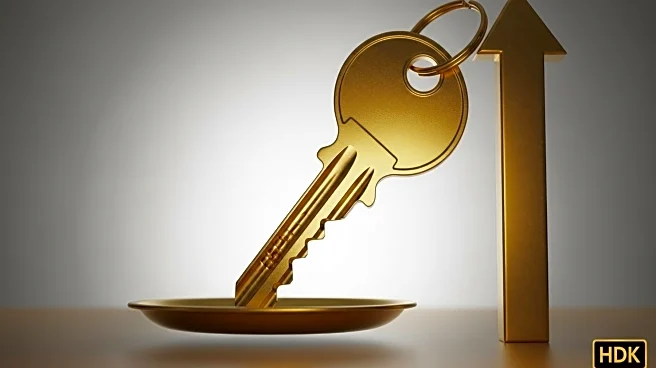What is the story about?
What's Happening?
The average rate on a 30-year U.S. mortgage has increased for the second consecutive week, reaching 6.34%, according to Freddie Mac. This rise follows a period of declining rates that had previously brought home borrowing costs to their lowest level in nearly a year. The increase in mortgage rates comes amid broader economic conditions and could affect the housing market by making home loans more expensive for consumers.
Why It's Important?
Rising mortgage rates can have significant implications for the housing market and the broader economy. Higher borrowing costs may deter potential homebuyers, leading to a slowdown in home sales and affecting real estate market dynamics. This could also impact related industries, such as construction and home improvement, as demand for new homes and renovations may decrease. Additionally, existing homeowners may find refinancing less attractive, potentially affecting consumer spending and economic growth.
What's Next?
As mortgage rates continue to rise, stakeholders in the housing market, including lenders, real estate agents, and policymakers, will need to monitor the situation closely. Adjustments in lending practices and potential policy interventions may be considered to address affordability concerns and support market stability. The Federal Reserve's monetary policy decisions will also play a crucial role in influencing future rate trends and economic conditions.
Beyond the Headlines
The increase in mortgage rates may prompt discussions on housing affordability and access to homeownership. As borrowing costs rise, there could be increased focus on the challenges faced by first-time homebuyers and low-income families. Long-term implications for housing equity and economic disparity may become more pronounced, necessitating policy responses to ensure inclusive growth and financial stability.
















